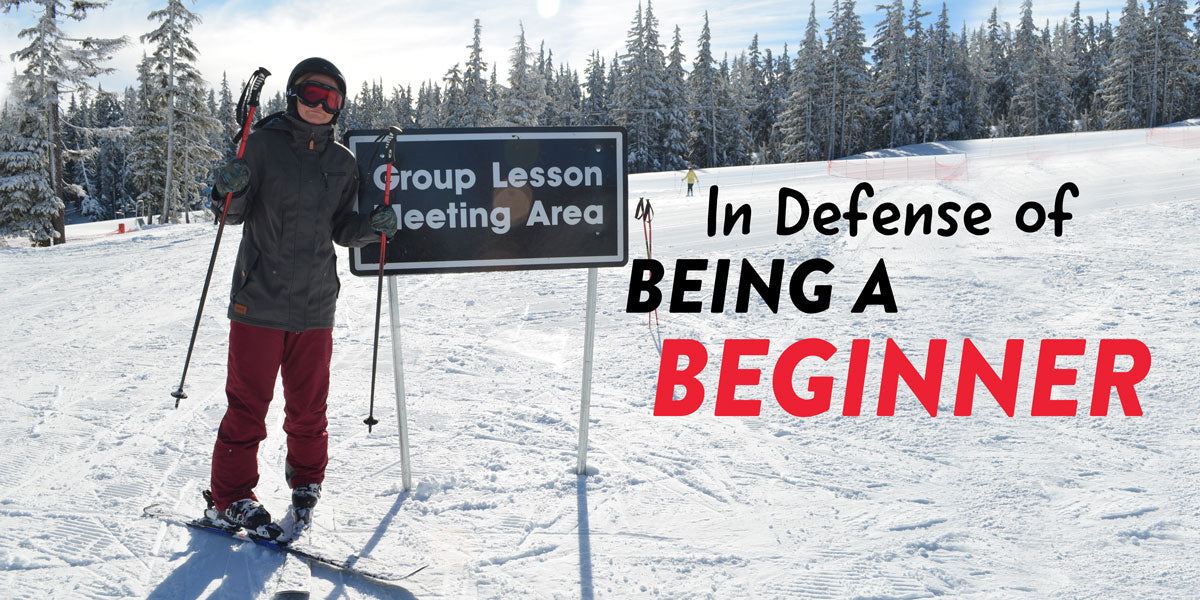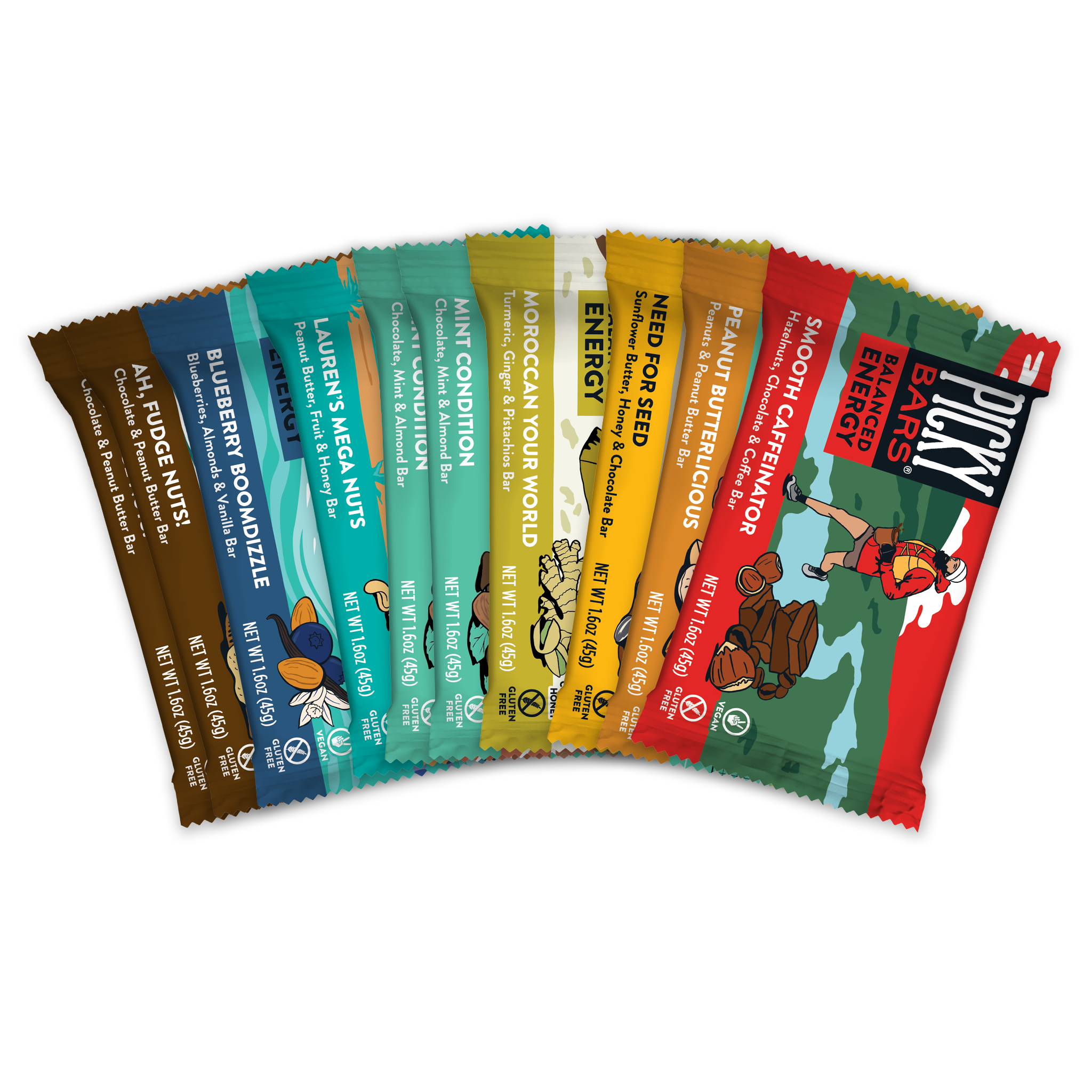

· By Sarah Conklin
Being Bad at Stuff is Good for You
The deeper we get set in our ways and comforts, the harder it is to crawl out of them. As an adult, trying new things is scary for a multitude of reason:
- You know your comfort zone, and it’s, uhh, comfortable
- You’re scared of looking silly
- Analysis Paralysis
- You’ve already figured out “your thing” and want to stick with it
- Injuries are easier and recovery harder with age
But it’s important to push outside your limits, if nothing else for the character development that comes from being new (and likely, bad) at something. Studies are surfacing every day about the harm of single-sport focus in young athletes, and the same logic could be applied to adults. By mixing up your activities you not only get a wider range of dynamic, physical training, but your cognitive self benefits from avoiding “cruise control” and being routinely pushed into unfamiliar or unexpected terrain.
So, we’re here to nudge you into trying something new. And not just taking your running shoes from roads to trails or from 5k to 10k (although both of those are great!). Let’s completely switch it up! Do something that scares the life out of you, something you never thought possible, something you didn’t even know was a thing until you read about it in Outside Magazine or overheard your crazy coworker talking about it.
Making the leap into the unknown is extremely difficult though, and super scary! In addition to the list above, there’s a whole host of gear questions, foreign terminology, and of course physical skills blockading newbies from trying a new sport. Starting on Monday we’re kicking off a monthly series, “… For Noobs” that will help knock down some of those sport-specific hurdles that might help nudge you from passive curiosity to, “alright, I’m gonna give it a shot!” We’re super lucky to have a network of professional athletes and coaches from all corners of the sporting world to chime in with advice, and the first one, “Triathlon for Noobs” will naturally feature our own Ironman CEO, Jesse Thomas.
Until then, here are some tips for overcoming the common fears that keep people from trying new things. Because dagnabbit, we want you out there living your most exciting life possible.
1) You’ve found your Comfort Zone, and you like it there, thankyouverymuch
Yeah, it’s easy to lace up your running shoes and tackle the same neighborhood route each day. You know XX miles a week is enough to keep your pants buttonable, that YY race distance is attainable, that Suzie’s spin class on Tuesday mornings always has a good playlist and doesn’t work you so hard you're raiding the work snack cupboard at 10am. Routines are good - necessary even - but never playing outside your Comfort Zone means you’ll just always be right where you are now. Maybe you’re happy with that, but if the itch for new terrain, the fearful rush of trying something new, the fulfilment that comes with accomplishing something you never thought possible has any ring to it, you’re gonna have to vacate that safe space.
How: Join your running store’s weekly group run, let your trail runner friend or someone on the internet convince you to sign up for an off-road race, print out that “one week free trial” offer from the new exercise studio and see if maybe you love yoga/Orange Theory/Crossfit/underwater jiu-jitsu.
2) “But I’ll look like a total ding dong, people will laugh and my reputation will be ruined forever”
First, those people are jerks - everyone was a beginner at some point. It takes some extra bravery to put your developed ego on the line as an adult, but that’s not a good reason not to try something you might end up loving! You know those clear protective films they put on new electronics? You know you’re supposed to peel them off, right? That screen isn’t going to be perfect forever no matter how hard you try, and what’s the point of having it if you can’t use it to its fullest anyway? So peel the protective armor off your fragile little ego, and let it be exposed to all the things that can scratch, ding, and shatter it so that you can use it to its fullest capabilities.
How: Take a beginner’s lesson where everyone else will be just as new as you, or entrust a friend to show you the ropes. And when all else fails, trust a quick “<your new sport here> for beginners” Google search - it’ll show you at least how to put your helmet on the right way.
3) You’ve thought about it, then over thought it, and now you can’t do anything about it
Analysis Paralysis is a real thing, and if you haven’t experienced it you’re either a spontaneous sonuvabitch or you just don’t realize that’s what kept you sitting on your hands longer than you felt necessary. Doing prep and research is obviously important - “What safety equipment do I need for rock climbing?” - but spending all your mental energy worrying what it’s going to feel like, what you’re going to look like, whether you’re going to enjoy it? Big old waste of time and energy.
How: Channel that energy you’d use to pre-worry about what you’re about to do and summon it for positivity, a willingness to give it your best shot, to make the most of whatever it ends up being. If you show up with a good attitude instead of a tense ball of knotted worry yarn your odds of a positive experience go up 274%. (<--- estimated)
4) You’d rather perfect “your thing” than start over with something new
Yeah, being good at stuff is good for the ego. But how pro can you really get? There’s a whole world of new challenges, victories, and people to meet in other activities. You’d be surprised how fulfilling something small feels early on (finally clearing a rock garden on your bike or casting your fishing line without getting tangled in the bushes) compared to shaving a few seconds off your five-year-old 5k PR.
How: Let down your guard, and embrace the newbie-ness. Nobody expects you to be a pro your first day (or week, or year!) so go ahead and own your new role. Those old PRs will always be there for chipping away at - Pick a new goal to start chipping away at.
5) It’s easier to get hurt, and harder to recover these days
Yeah. Just uh, try not to get hurt. Or at least check your insurance plan before heading out. (And always wear protective safety equipment!)
How: Just remember it’s easier to fall when you stop pedaling.

* CHAPTER 1: Triathlon with Jesse Thomas
* CHAPTER 2: Half Marathon with Steph Bruce
(including an 8-week training plan fit for beginners or experienced runners!)
* CHAPTER 3: Mountain Biking with Lindsey Richter of Ladies AllRide
* CHAPTER 4: Ultramarathons with Rob Krar
* CHAPTER 5: Backpacking with PCT alumni Nicole Antoinette





